
Alphabetical Menu
Chronological Menu
|
Borrego 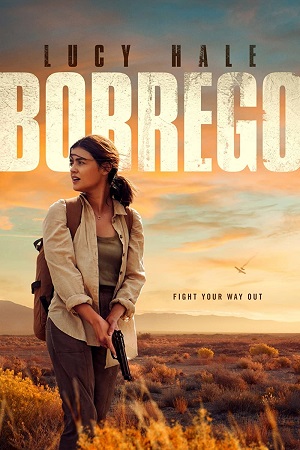
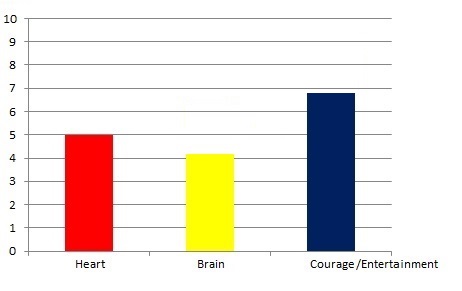 The Pink Cloud 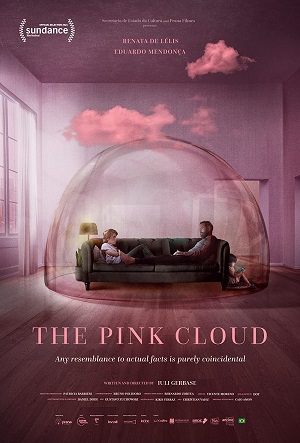 Giovana (Renata de Lélis) meets Yago (Eduardo Mendonça) at a party and invites him over to her apartment. They wake up the next morning just when a deadly, mysterious pink cloud envelops the city and everywhere else around the world, thereby forcing them together in lockdown. Days turn to weeks, weeks turn to months and months turn to years as they gradually develop a romantic relationship. Even though pink cloud plays a pivotal role in the plot and represents its only villain, The Pink Cloud isn't really about the pink cloud. Writer/director Iuli Gerbase could've gone the edge-of-your-seat sci-fi thriller route or horror route by showing zombies popping up at any point, but instead opts for a poignant study of a relationship. She doesn't waste much time with exposition as the cloud arrives within the first 10 minutes, so the first act isn't very long. Most of the exposition about the cloud itself comes, briefly, from the news report on TV. Giovona and Yago both seem like strangers to the audience at first, but they're also strangers to each other initially. As they get to know each other throughout the years, so does the audience. It's a testament to the sensitive screenplay that they both feel like fully-fleshed human beings, warts and all. Their relationship doesn't go as smoothly as they hoped because of certain obstacles in their way which will not be spoiled here, but it's always fascinating to observe how their relationship evolves. Many scenes ring true, not just given their relatable experiences with lockdown which includes daily food deliveries, but because of how honest and natural the dialogue feels. Moreover, Gerbase leaves just enough room for interpretation. While many years pass, it's up to the audience to fill in those gaps and to figure out what the film didn't show the audience. She also eschews voice-over narration and flashbacks as a means of spoon-feeding the audience. By trusting the audience's imagination, intelligence and emotions, and by providing enough space for the characters to come to life, she also treats the audience like human beings which is a rare feat. Renata de Lélis and Eduardo Mendonça give solid, well-nuanced performances and have great chemistry together. That helps the audience to feel emotionally invested in the relationship between Giovana and Yago from start to finish, through thick and thin. Surprisingly, for a film that takes place mostly inside of an apartment with two characters, it actually feels rather cinematic instead of like a stuffy chamber piece. There's some CGI, of course, with the ominous pink cloud outside of the couple's window, and the lighting adds some style to many scenes, this isn't the kind of movie that bombards the audience with visual style nor does it have to. Most importantly, though, writer/director Iuli Gerbase manages to find just the right balance of truth and spectacle, and even finds plenty of spectacle within the film's truth in the dialogue and interactions between the couple. That intangible humanism or truth is a truly special effect that's far more special than anything you'll find in a $100 million tentpole movie. At a running time of 1 hour and 45 minutes, The Pink Cloud is a tender, heartfelt and unflinchingly honest love story. 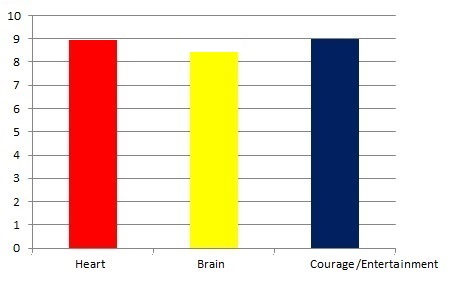 Scream 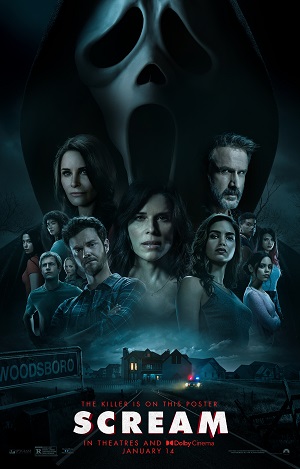 Sam (Melissa Barrera) returns to her hometown of Woodsboro, California to visit her estranged sister, Tara (Jenna Ortega) in the hospital after Ghostface tries to kill her. Richie (Jack Quaid), Tara's boyfriend, also joins her along with Tara's friends, Liv (Sonia Ben Ammar), Amber (Mikey Madison), Wes (Dylan Minnette), Chad (Mason Gooding) and his twin, Mindy (Jasmin Savoy Brown). To help them solve the mystery behind the new Ghostface killings, they seek the assistance of Dewey (David Arquette) who's had experience dealing with Ghostface killings previously. Gale (Courtney Cox) and Sidney (Neve Campbell) also tag along to try to solve the murders. Like its predecessors, the new installment in the Scream series doesn't take itself too seriously as it unabashedly pokes fun at itself and the horror genre in general. The screenplay by James Vanderbilt and Guy Busick is filled with tongue-in-cheek humor and inside jokes for fans of Scream as well as for critics of Scream. Constant self-reference can only go so far, though, and, unless the film has new ideas or takes the concept to a whole new level, it's not taking any risks. Unfortunately, that can be said about this version of Scream which plays everything too safely while trying to land the same tonal beats as the cult classic from 1996. The beats land at times, but the filmmakers seem to be trying too hard to please the audience and to cater to "fan service", the same problem that too many films, i.e. Ghostbusters: Afterlife suffer from, too. The dark humor and witty self-commentaries are amusing for a while, though, and there's a little suspense as you wonder who or whom among the characters will turn out to be Ghostface. Without revealing any spoilers, the third act takes a bit of a nosedive with too much suspension of disbelief and not much cleverness, especially in hindsight. If it were more over-the-top, bold and outrageous, perhaps it would've worked, but it falls a bit flat. Also, there's an oddly saccharine hospital scene in the second act involving Sam and bonding with Tara that nearly derails the film because it feels like it belongs in a soap opera or a Nicholas Sparks movie, not in any Scream movie. That said, the most interesting dynamics between any of the characters is actually between two of the supporting ones, Dewey and Gale, who have a confrontation that's much more intense and compelling than anything else in the film. There's nothing exceptional about the editing or cinematography, although, the choice to use a little bit graininess does add a little style, but it's not very noticeable. If you're looking for shockingly gross gore, you'll find a little bit of that which should please the audiences who crave those "cool killings." Fortunately, Scream doesn't rely on gore to entertain the audience. The jump scares, though, and there are plenty of them, get tiresome and repetitive eventually while losing their impact. Also, the running time of 1 hour and 54 minutes does feel slightly excessive when a 100 or 90 minutes would've made it tighter and leaner. Why are too many films these days approaching or exceeding the 2 hour mark? Less is almost always more. By the time the end credits roll, there's a bit of fatigue and relief that it's over instead of making you feel like you want to watch it again. At least it's mildly entertaining and harmless fun, as long as you check your brain at the door and don't expect anything refreshing, mind-blowing or surprising. 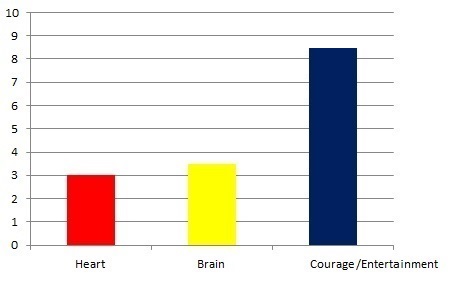 Shattered 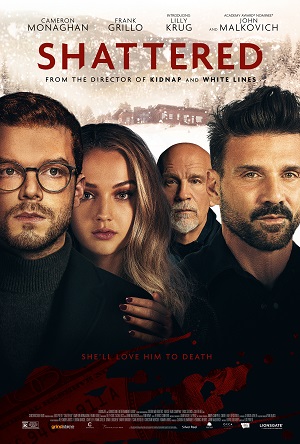
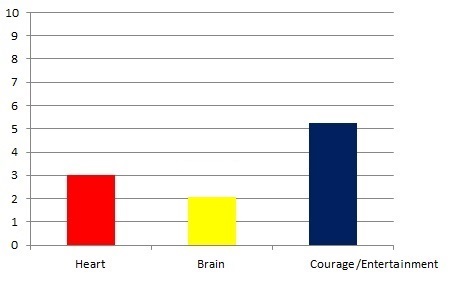 |